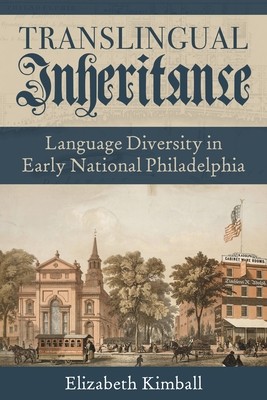
- We will send in 10–14 business days.
- Author: Elizabeth Kimball
- Publisher: University of Pittsburgh Press
- ISBN-10: 0822946688
- ISBN-13: 9780822946687
- Format: 15.5 x 23.1 x 2.5 cm, hardcover
- Language: English
- SAVE -10% with code: EXTRA
Reviews
Description
Honorable Mention, Rhetoric Society of America Book Award Translingual Inheritance tells a new story of the early days of democracy in the United States, when English had not yet become the only dominant language. Drawing on translingual theory, which exposes how language use contrasts with the political constructions of named languages, Elizabeth Kimball argues that Philadelphians developed complex metalinguistic conceptions of what language is and how it mattered in their relations. In-depth chapters introduce the democratically active communities of Philadelphia between 1750 and 1830 and introduce the three most populous: Germans, Quakers (the Society of Friends), and African Americans. These communities had ways of knowing and using their own languages to create identities and serve the common good outside of English. They used these practices to articulate plans and pedagogies for schools, exercise their faith, and express the promise of the young democracy. Kimball draws on primary sources and archival texts that have been little seen or considered to show how citizens consciously took on the question of language and its place in building their young country and how such practice is at the root of what made democracy possible.EXTRA 10 % discount with code: EXTRA
The promotion ends in 19d.23:00:37
The discount code is valid when purchasing from 10 €. Discounts do not stack.
- Author: Elizabeth Kimball
- Publisher: University of Pittsburgh Press
- ISBN-10: 0822946688
- ISBN-13: 9780822946687
- Format: 15.5 x 23.1 x 2.5 cm, hardcover
- Language: English English


Reviews